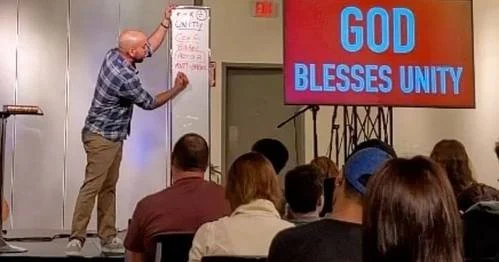Churches get stuck all the time.
Too often we can find ourselves doing ministry out of memory.
For what it's worth, here are 2 Important Questions for Fearless Leaders to ask...
1) HAVE WE LOST OUR LOVE FOR LOST PEOPLE?
400 years ago Protestants fled England and came to the New World to set up churches... for themselves. If your church is insider-focused, it's because of our Pilgrim heritage!
Ignite your passion for what ignites God's heart -- Remind your church that EVERY person matters!
If your church is reaching the lost, you WILL be a target from RELIGIOUS people!
Religious people were ALWAYS walking away and rejecting Jesus throughout His ministry. If you are not receiving the same rejection as Jesus, then you may not be preaching the same gospel that Jesus preached!
Ask yourself: Am I a fisher of men or a keeper of an aquarium?
2) AM I LEADING WITH A RISING LEVEL OF HOPE?
Nothing great ever happens THROUGH YOU until it happens TO YOU!
Look at every great hero in the Scriptures:
Moses spent 40 years in the wilderness before ascending into leadership
David was living in a cave down by the river for a decade
Peter beat himself up after rejecting Jesus three times
God LOVES using BROKEN people to minister to BROKEN people!
The key is to not wallow in your brokenness. Minister from the OVERFLOW of what the Lord is doing in your life and in your heart! You cannot lead people to a place that you are not already at.
The most important thing I do as a leader: Making sure that I stay encouraged!
Ask yourself: 'What things CHARGE MY BATTERIES?'
If your internal batteries aren't charged up, you will fall into weariness.
DISCOURAGEMENT precedes DESTRUCTION:
The Enemy RUINS your FUTURE by first RUINING your DAY so that you will run toward destructive habits and choices!














